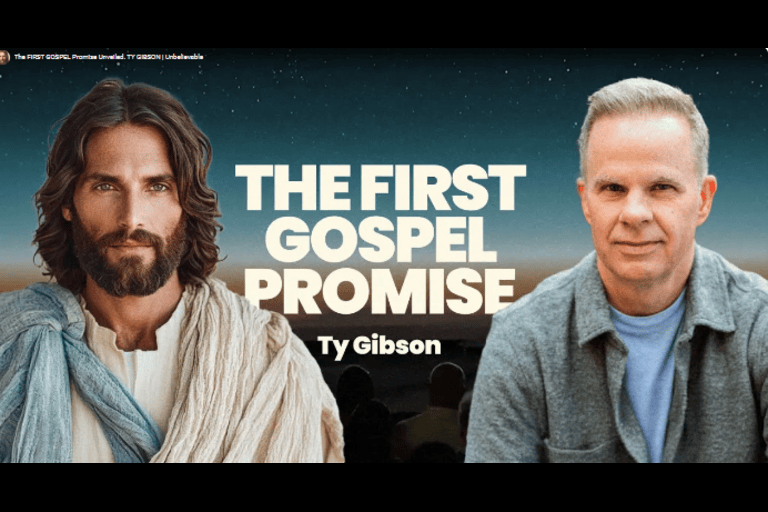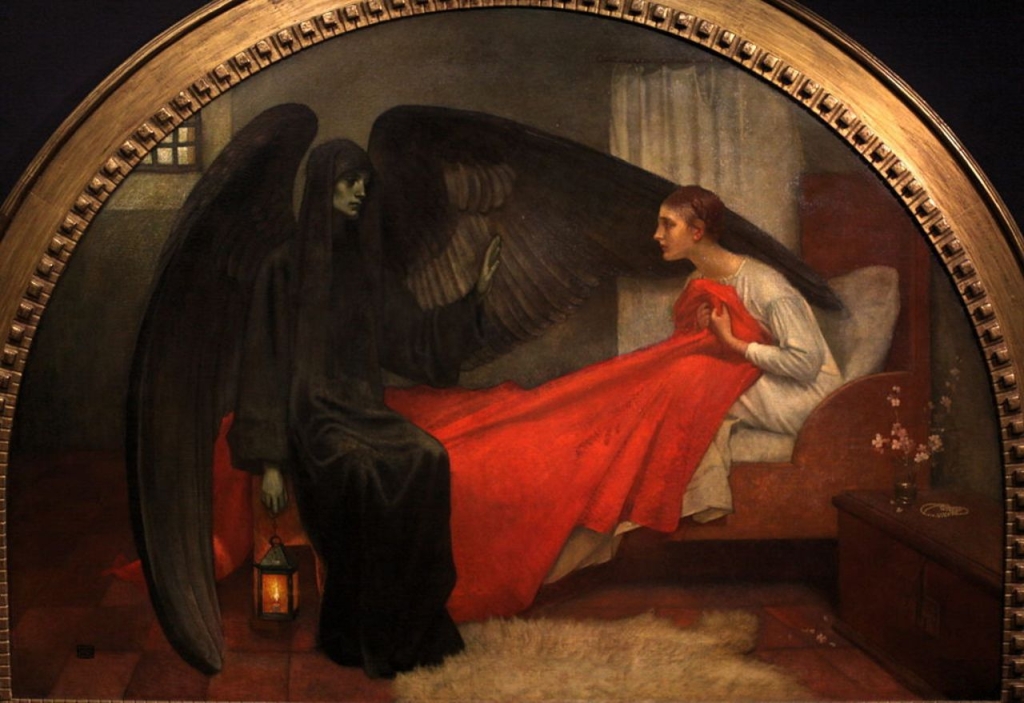Have you ever gazed at the stars on a quiet night, wondering what lies beyond this life? Death is a universal journey, yet it’s often cloaked in mystery and fear. What if the Bible paints a picture of death not as an immediate leap to heaven or hell, but as a peaceful rest—a sleep in the grave—until the glorious second coming of Jesus Christ? As someone who deeply cares about your spiritual journey, I invite you to explore this comforting perspective rooted in Scripture. Let’s dive into a biblical worldview that sees death as a temporary slumber, awaiting the resurrection, and address vital questions about life after death, the first death, and the second eternal death. With love and hope, let’s uncover the truth together.
Background Information: Understanding Death and Soul Sleep in Scripture
The Nature of Death in the Bible
From a biblical perspective, death entered the world through sin, as seen in Genesis 3:19, where God tells Adam, “Dust you are, and to dust you will return.” The Bible describes death as an enemy (1 Corinthians 15:26), but for believers, it’s not the end—it’s a transition. Some Christian traditions teach that souls go immediately to heaven or hell, but the Biblical view, often called “soul sleep,” suggests that the dead rest unconsciously in the grave until the second coming of Jesus Christ. This perspective emphasizes God’s ultimate plan for resurrection and renewal.
The Concept of Soul Sleep
The term “soul sleep” doesn’t appear in Scripture, but it’s derived from passages that liken death to sleep. For instance, Psalm 13:3 says, “Consider and answer me, O Lord my God; light up my eyes, lest I sleep the sleep of death.” Similarly, Jesus refers to Lazarus’ death as sleep (John 11:11-14), and Paul speaks of believers who have “fallen asleep” (1 Thessalonians 4:13). This view holds that after the first death—the physical death we all face—the soul and body rest in the grave, unconscious, until Christ’s return.
First Death vs. Second Eternal Death
The Bible distinguishes between the first death (physical death) and the second death (eternal separation from God). Revelation 20:14-15 describes the second death as the “lake of fire,” the final judgment for those who reject God. The first death, however, is temporary—a sleep from which all will awaken at the resurrection. This distinction is key to understanding life after death in this worldview, offering hope that the faithful will rise to eternal life, while the unrighteous face the second eternal death.
God’s Word is a lamp to our feet (Psalm 119:105), guiding us through life’s uncertainties. With a heart full of care, let’s explore what Scripture says about this sleep in the grave and the hope of the resurrection.
Main Arguments: Sleep Until the Second Coming
The Biblical Case for Sleep
Scripture frequently uses “sleep” to describe death, suggesting a state of unconscious rest. Ecclesiastes 9:5 states, “The dead know nothing; they have no further reward, and even their name is forgotten.” This verse, while poetic, supports the idea that the dead are not actively experiencing heaven or hell but are in a state of inactivity. Similarly, Daniel 12:2 prophesies, “Multitudes who sleep in the dust of the earth will awake: some to everlasting life, others to shame and everlasting contempt.” Here, the dead “sleep” until the resurrection at the second coming of Jesus Christ.
The metaphor of sleep is comforting—it implies rest, not torment or immediate reward. Job 14:12 reinforces this: “So man lies down and does not rise; till the heavens are no more, people will not awake or be roused from their sleep.” The phrase “till the heavens are no more” points to the end times, aligning with Christ’s return.
Challenging Immediate Heaven or Hell
Some argue that souls go directly to heaven or hell, citing passages like Luke 23:43, where Jesus tells the thief on the cross, “Today you will be with me in paradise.” However, proponents of soul sleep note that the Greek text lacks punctuation, and a different rendering—“Truly I tell you today, you will be with me in paradise”—could imply a future promise. Additionally, the parable of the rich man and Lazarus (Luke 16:19-31) is often seen as a symbolic story, not a literal depiction of the afterlife, as it aligns with Jewish folklore of the time rather than definitive doctrine.
Paul’s words in 2 Corinthians 5:8 (“away from the body and at home with the Lord”) might seem to suggest immediate heaven, but soul sleep advocates interpret this as referring to the resurrection, when believers are fully united with Christ. The emphasis is on the next conscious moment for the dead being the resurrection, not an immediate afterlife experience.
Five Key Concepts
1. Death as Unconscious Sleep:
Death as a profound rest where all faculties cease.
“Satan commenced his deception in Eden. He said to Eve, Thou shalt not surely die. This was Satan’s first lesson upon the immortality of the soul; and he has carried on this deception from that time to the present… The soul that sins, it shall die (Ezekiel 18:20); but it is Satan’s lie that the soul is immortal and will live eternally in misery.” This sleep is a blessing, shielding the dead from the troubles of earth and the final judgment.
2. No Immediate Heaven or Hell:
Contrary to popular belief, no one goes to heaven or hell at death. “Satan knew that if this error—that the wicked will suffer ever-burning fire in hell—should be received, God would be hated by many… It was a marvel to me that Satan could succeed so well in making men believe that the words of God, The soul that sins it shall die, means that the soul that sins it shall not die, but live eternally in misery.” Instead, the righteous “sleep in Jesus” (1 Thessalonians 4:14), awaiting the resurrection, while the wicked remain in the grave until their final end at the Second Coming of Jesus Christ.
3. The Role of Resurrection at the Second Coming:
Immortality is conditional and granted at Christ’s return. “This representation [of death] is abundantly sustained by the scriptures… that our existence is not perpetuated by means of an immortal soul, but that, without a resurrection from the dead, there is no future life.” In 1 Corinthians 15:51-54: “We shall not all sleep, but we shall all be changed… For this corruptible must put on incorruption, and this mortal must put on immortality.” The dead “awake” at the trumpet sound, with believers receiving glorified bodies.
4. First Death vs. Second Death:
The “first death” (the sleep-like physical death all experience) is distinguished from the “second death” (eternal annihilation for the wicked). “Not one of the family of Adam have passed that flaming sword [to the tree of life]… The soul that sins it shall die an everlasting death; a death that will last forever, where there will be no hope of a resurrection.” The first death is temporary sleep; the second is final, without resurrection to eternal life, as punishment for sin (Revelation 20:14-15).
5. Rejection of Immortality of the Soul:
The Immortality of the Soul, Is it a Scriptural Doctrine? “If these things be true [immediate heaven], then there is literally no place left for the coming of the Lord… But through belief in the doctrine of the natural immortality of the soul, it is now sought to be made to appear that this ‘saying’ [Death is swallowed up in victory] is ‘brought to pass’ when men die!” Acts 2:29,34 (David’s body in the grave, soul not ascended) supports that even the righteous sleep until resurrection.
The Resurrection at the Second Coming
The heart of this perspective lies in the Second Coming of Jesus Christ, when the dead are raised. 1 Thessalonians 4:16-17 declares, “For the Lord himself will come down from heaven… and the dead in Christ will rise first. After that, we who are still alive and are left will be caught up together with them in the clouds to meet the Lord in the air.” This event marks the awakening of those who sleep in the grave. Believers rise to eternal life in a glorified body (1 Corinthians 15:50-54), entering the new heavens and new earth (Revelation 21:1-4).
For the unrighteous, the resurrection leads to judgment and the second eternal death (Revelation 20:11-15). This final separation is not ongoing torment in the grave but a definitive end after judgment. The beauty of sleep after the first death is its focus on God’s justice and mercy—rest for all until the appointed time.
Addressing Common Objections
Critics of sleep after death often point to passages suggesting consciousness after death, like Moses and Elijah appearing at the Transfiguration (Matthew 17:1-3). Sleep proponents argue these are exceptions—special acts of God—or visions, not proof of universal consciousness. Another objection is the fear that sleep after death diminishes hope. On the contrary, it magnifies the glory of the resurrection, assuring believers that their next moment of awareness will be in Christ’s presence, free from pain or delay.
This view doesn’t negate heaven or hell; it redefines their timing. Heaven is the eternal reward at the resurrection, and hell (the second death) follows judgment, not the first death. It’s a perspective that invites trust in God’s perfect timing.
Practical Tips: Living with Hope in the Sleep of Death
Trust in God’s Plan for Resurrection
If the idea of soul sleep feels new, take heart—God’s promises are sure. Meditate on 1 Corinthians 15:20-22, which calls Christ the “first fruits” of the resurrection. Trust that your sleep in the grave is temporary, leading to eternal life. Pray for faith to rest in God’s timing, knowing the second coming is certain.
Share the Hope of the Resurrection
Talk to friends and family about this biblical hope. Explain that death is not to be feared but seen as a restful pause before Christ’s return. Share verses like John 5:28-29, which promise a resurrection for all. “Do not be amazed at this, for a time is coming when all who are in their graves will hear his voice and come out—those who have done what is good will rise to live, and those who have done what is evil will rise to be condemned.”
Your words, spoken in love, can comfort those anxious about life after death.
Prepare Spiritually and Practically
Accept Jesus as your Savior and the Lord of your life, to ensure you awake to everlasting life (John 3:16). Confess your sins and live in faith (Romans 10:9). Practically, prepare for death by creating a will, succession plan or by sharing your beliefs with loved ones. These acts of love can point others to the hope of the resurrection to eternal life.
Find Peace in Community
Join a Bible-believing church that teaches about the resurrection and sleep after death. Discuss these topics in small groups to deepen your understanding. If you’re grieving, seek support from those who share this hope, finding comfort in the promise of reunion at Christ’s return.
Live with Eternity in View
Let the hope of the Second Coming shape your daily life. Prioritize loving others, forgiving freely, and pursuing holiness. Avoid the distractions of sin, knowing that the second eternal death awaits those who reject God. Live as if Christ could return tomorrow—because He might!
Conclusion: Resting in Hope Until Christ Returns
Dear friend, as we close this journey through the biblical perspective of sleep after on dies, my heart is full of care for you. Death, though an enemy, is not the end. The Bible offers a comforting vision: after the first death, we sleep in the grave, unaware of time, until the trumpet sounds at the second coming of Jesus Christ. Then, believers awake to eternal life in a glorious new creation, while the unrighteous face judgment and the second eternal death. This view doesn’t diminish heaven or hell—it places them in the context of God’s perfect plan.
If you’re wrestling with fear or uncertainty, turn to Jesus today. His promise is sure: “I am the resurrection and the life. The one who believes in me will live, even though they die” (John 11:25). May you find peace in the hope of sleep after death, resting in the assurance that your next conscious moment will be in the presence of your Savior. Live boldly, love deeply, and await the day when Christ returns to awaken you to life everlasting. God bless you with His unending love.






